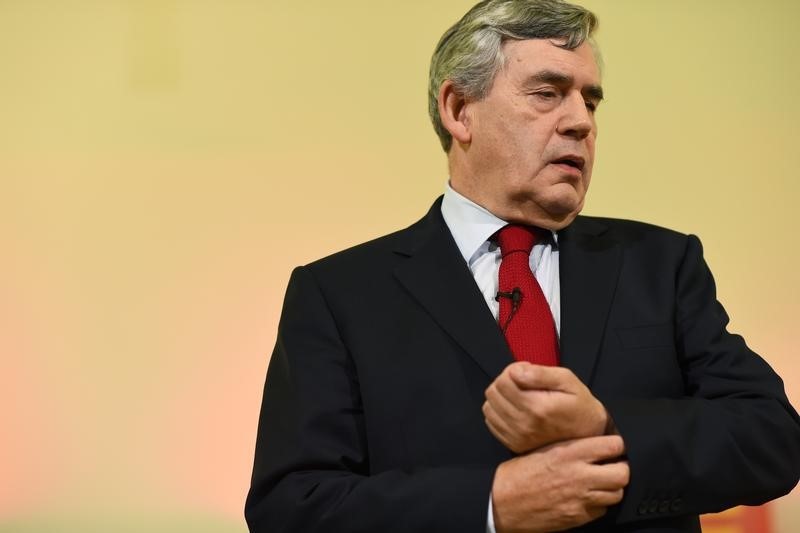LONDON (Reuters) - Former Prime Minister Gordon Brown is set to announce on Monday that he will stand down as a member of parliament at next year's national election after 32 years in parliament, British media reported.
Brown, ranked Britain's most unpopular prime minister in half a century before he led the Labour party to its worst electoral defeat in a generation in 2010, returned to the spotlight this year with several high-profile speeches during the Scottish independence referendum campaign.
The 63-year-old Scot, often academic and awkward in front of the camera during his time in power, was credited with saving the union by imploring voters to stay in the United Kingdom after a sudden surge in Scottish separatist support.
Broadcasters including the BBC looked back at Brown's political career on Monday and said he would announce his decision at a local party meeting but calls to his office seeking confirmation went unanswered.
Brown studied at the University of Edinburgh and gained a PhD on the Labour Party's role in driving political change in Scotland. He has represented the constituency of Kirkcaldy and Cowdenbeath in southeast Scotland since 1983 when he shared a parliament office with another new Labour member of parliament, Tony Blair.
Their relationship dominated British politics as Brown, Chancellor for a decade, coveted and eventually got Blair's job as prime minister in 2007.

Since stepping down as Labour leader following the 2010 election defeat, Brown, who has a majority of 23,000 in his Kirkcaldy seat, has focussed mainly on charity work. In 2012 he was appointed United Nations Special Envoy for Global Education.
(Reporting by Kylie MacLellan; editing by Stephen Addison)